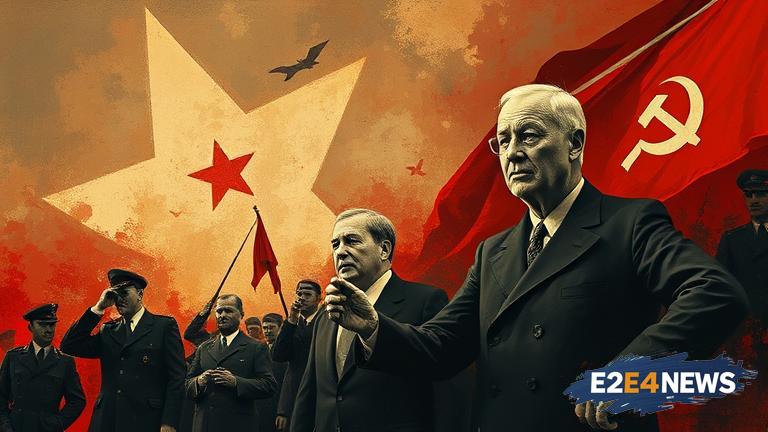The Molotov-Ribbentrop Pact, signed on August 23, 1939, was a non-aggression treaty between Nazi Germany and the Soviet Union. The pact was named after the two foreign ministers who negotiated the agreement, Joachim von Ribbentrop and Vyacheslav Molotov. The treaty included a secret protocol that divided Eastern Europe into Soviet and German spheres of influence, effectively giving the Soviet Union control over the Baltic states, Poland, and other territories. This pact marked a significant shift in the balance of power in Europe, as it allowed Nazi Germany to focus on its western borders, while the Soviet Union expanded its territory in the east. The pact also included a trade agreement, which provided Nazi Germany with much-needed raw materials, such as oil and grain. The Molotov-Ribbentrop Pact was met with widespread criticism and outrage, particularly in the United States and the United Kingdom. Many saw the pact as a betrayal of the Soviet Union’s supposed commitment to communism and a clear indication of its willingness to collaborate with fascist regimes. The pact also had significant consequences for the people living in the territories affected by the agreement. In Poland, for example, the pact led to the division of the country between Nazi Germany and the Soviet Union, resulting in the displacement and persecution of millions of people. The pact also marked the beginning of a period of intense repression and violence in the Soviet Union, as Stalin used the agreement as a pretext to launch a series of purges and crackdowns on perceived enemies of the state. In the years that followed, the Molotov-Ribbentrop Pact would prove to be a pivotal moment in world history, contributing to the outbreak of World War II and the subsequent division of Europe into Eastern and Western blocs. The pact also had significant implications for the Jewish population of Europe, as it effectively sealed their fate and paved the way for the Holocaust. Today, the Molotov-Ribbentrop Pact is widely regarded as one of the most infamous and devastating agreements in modern history, a stark reminder of the dangers of totalitarianism and the importance of protecting human rights and dignity. The legacy of the pact continues to be felt, with many countries in Eastern Europe still grappling with the consequences of Soviet occupation and domination. In recent years, there has been a growing effort to come to terms with the past and to acknowledge the suffering and injustice inflicted on the people of Eastern Europe during this period. This includes efforts to preserve the history and cultural heritage of the region, as well as to provide compensation and restitution to those who were affected by the pact. Despite these efforts, however, the Molotov-Ribbentrop Pact remains a highly contested and sensitive topic, with many different interpretations and perspectives on its significance and impact. Some have argued that the pact was a necessary evil, a pragmatic decision made by the Soviet Union to protect its interests and security in a rapidly changing world. Others have seen the pact as a betrayal of the principles of communism and a clear indication of the Soviet Union’s willingness to collaborate with fascist regimes. Regardless of one’s perspective, however, it is clear that the Molotov-Ribbentrop Pact was a pivotal moment in world history, one that had far-reaching consequences for the people of Europe and beyond. The pact serves as a reminder of the dangers of totalitarianism and the importance of protecting human rights and dignity. It also highlights the need for ongoing efforts to come to terms with the past and to acknowledge the suffering and injustice inflicted on the people of Eastern Europe during this period. In conclusion, the Molotov-Ribbentrop Pact was a devastating agreement that had far-reaching consequences for the people of Europe and beyond. Its legacy continues to be felt today, and it serves as a reminder of the dangers of totalitarianism and the importance of protecting human rights and dignity. As we reflect on the significance of this pact, we must also acknowledge the suffering and injustice inflicted on the people of Eastern Europe during this period, and work towards a more just and equitable future for all.
